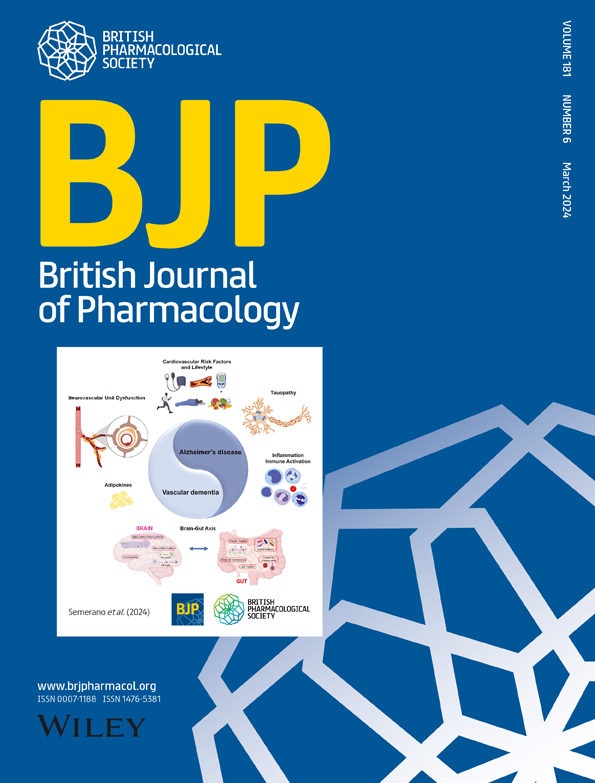Progress on the development of Class A GPCR‐biased ligands
IF 6.8
2区 医学
Q1 PHARMACOLOGY & PHARMACY
引用次数: 0
Abstract
Class A G protein‐coupled receptors (GPCRs) continue to garner interest for their essential roles in cell signalling and their importance as drug targets. Although numerous drugs in the clinic target these receptors, over 60% GPCRs remain unexploited. Moreover, the adverse effects triggered by the available unbiased GPCR modulators, limit their use and therapeutic value. In this context, the elucidation of biased signalling has opened up new pharmacological avenues holding promise for safer therapeutics. Functionally selective ligands favour receptor conformations facilitating the recruitment of specific effectors and the modulation of the associated pathways. This review surveys the current drug discovery landscape of GPCR‐biased modulators with a focus on recent advances. Understanding the biological effects of this preferential coupling is at different stages depending on the Class A GPCR family. Therefore, with a focus on individual GPCR families, we present a compilation of the functionally selective modulators reported over the past few years. In doing so, we dissect their therapeutic relevance, molecular determinants and potential clinical applications.开发基于 A 类 GPCR 的配体的进展情况
A 类 G 蛋白偶联受体(GPCR)因其在细胞信号传导中的重要作用及其作为药物靶点的重要性而持续受到关注。尽管临床上有许多药物都以这些受体为靶点,但仍有 60% 以上的 GPCR 尚待开发。此外,现有的无偏见 GPCR 调节剂所引发的不良反应也限制了它们的使用和治疗价值。在这种情况下,对偏性信号的阐明开辟了新的药理学途径,有望实现更安全的治疗。功能选择性配体有利于受体构象,从而促进特定效应物的招募和相关途径的调节。这篇综述调查了目前 GPCR 偏向调节剂的药物发现情况,重点关注最新进展。根据 A 类 GPCR 家族的不同,对这种优先耦合的生物效应的了解也处于不同阶段。因此,我们以单个 GPCR 家族为重点,对过去几年报道的功能选择性调节剂进行了汇编。在此过程中,我们剖析了它们的治疗相关性、分子决定因素和潜在的临床应用。
本文章由计算机程序翻译,如有差异,请以英文原文为准。
求助全文
约1分钟内获得全文
求助全文
来源期刊
CiteScore
15.40
自引率
12.30%
发文量
270
审稿时长
2.0 months
期刊介绍:
The British Journal of Pharmacology (BJP) is a biomedical science journal offering comprehensive international coverage of experimental and translational pharmacology. It publishes original research, authoritative reviews, mini reviews, systematic reviews, meta-analyses, databases, letters to the Editor, and commentaries.
Review articles, databases, systematic reviews, and meta-analyses are typically commissioned, but unsolicited contributions are also considered, either as standalone papers or part of themed issues.
In addition to basic science research, BJP features translational pharmacology research, including proof-of-concept and early mechanistic studies in humans. While it generally does not publish first-in-man phase I studies or phase IIb, III, or IV studies, exceptions may be made under certain circumstances, particularly if results are combined with preclinical studies.

 求助内容:
求助内容: 应助结果提醒方式:
应助结果提醒方式:


